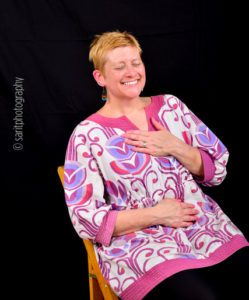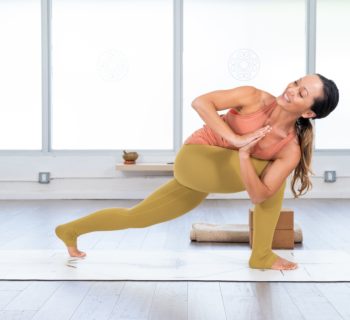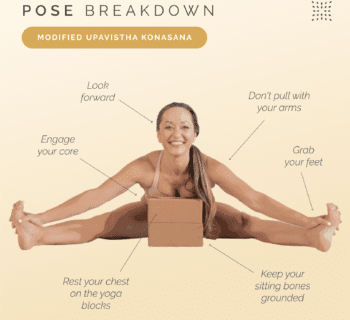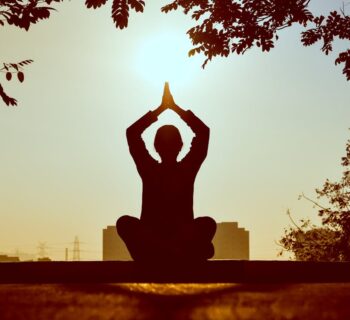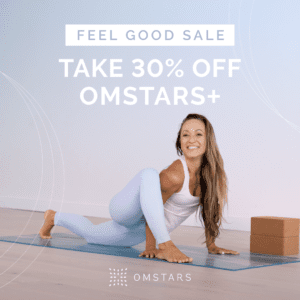Viktor Frankl once said what counts is not what lurks in the depths of challenge but how we face the future. Frankl’s words remind me that I don’t have to fix everything to embrace growth. My body doesn’t have to be perfected. In fact, in my experience, long-lasting personal growth flows from imperfection.
I’ve spent decades working on my relationship with my body and cultivating body acceptance. For the last 5 months, I’ve been relearning important lessons about body acceptance. The call to continued growth, to re-engage with this work in progress, hit without warning yet profoundly revealed how resourcing myself and renegotiating the relationship with my body are crucial to my sense of well being. Up until now, I thought I lived these practices and beliefs from the core of my being. Yet nothing is ever fixed and a recent health issue jarred my reality, invited me to look a little deeper and make adjustments.
As I’ve written about previously, I survived a devastating and near-fatal car accident when I was 19 years old. I was diagnosed with a spinal cord injury, and the experience completely altered my life path. Before the accident, I was a dancer/choreographer with dreams of dancing on Broadway. After the accident, it took a year and a half of intense physical therapy and deep soul searching to come back into my body and restart my life. By some miracle, I relearned to walk with the aid of below-the-knee plastic braces, but my journey back to self changed my life in incredible and surprising ways.
For example, after years of disconnecting from my body after the accident, I discovered adaptive and accessible yoga and eventually became a 200-hour Registered Yoga Teacher (RYT), certified Accessible Yoga Teacher, Yoga For All Teacher and Opening Yoga Instructor from Mind Body Solutions. These experiences taught me how to listen to and live in my body in the present moment. They also led to my mission of teaching people to trust their body by tapping into and exploring their inner wisdom. But along this path, I mistakenly thought I made peace with my body and assumed there was little room for growth. I falsely assumed that relearning to walk would be the biggest challenge of my life. I was wrong.
My lesson occurred when I awoke one day and couldn’t make a fist or bend my hands without intense pain. As a freelance writer and online English instructor, I was shocked when my hands became immobile. My arms, legs, and back were affected too. I couldn’t lift my arms past my shoulders without sharp shooting pains throughout my body. My legs felt like cement. I could barely walk without hunching over and holding onto walls for stability. My symptoms took a toll, mentally and physically. For months, I couldn’t sleep due to throbbing pain. When I finally went to several doctors, it was a puzzling, marginalizing process that took over 5 months of doctor visits, tests, X-rays, and uncertainty. I started to feel stuck because the senses and body parts I once relied on after my spine injury shifted. Old triggers and disempowered storylines from the past surfaced. I fell back into the assumption trap that I didn’t know how to adapt or adjust. There were moments when I felt traumatized for not knowing how to use my mindful practice to calm mind, body, and spirit. Then, my ego kicked in, and I started to stuff my feelings and suffer in silence.
Normally, when physical challenges appear, I feel empowered and lean into the unknown. My car accident taught me to adapt no matter the circumstance. But this challenge felt different. I felt powerless and unsure of how to trust my body. It was as if I forgot all my mindfulness training and was back at square one. The body parts I once relied on wouldn’t function as they did before. I felt trapped. At first, I was afraid to say anything outside of close family and friends. I thought my challenges would disappear on their own. Of course, they didn’t.
Usually, I’m very connected to my internal guide. As a mindfulness teacher and practitioner, my inner guide knows what I need mentally and physically. I’ve learned to trust that sense of inner knowing; it always leads me to the truth. But recently, it took many hours of renewed self-care, mantra and breathwork, and the conscious reprogramming of negative self-talk to get back there. And in truth, “getting there” is both familiar and brand new on my body acceptance journey.
So far, doctors say I have severe carpal tunnel and arthritis, but they still don’t have the answers. Even though I’m still going through tests to uncover the root of this challenge, I’m feeling more at home in my body. Thankfully, I’m able to walk and move more easily. I know whatever lies ahead is doable if I continue to trust and accept my body no matter the challenge. My mindful practice looks different these days. I’m learning new ways to slow down and connect internally, and this gives me hope.
In the meantime, what I’ve come to know for sure is that the rhythm of our bodies is unpredictable. No matter how alive we feel in our bodies, life can change, and we must learn to adapt. I’m also relearning that the beauty of mindful practice is that there is no end to this work. The time when we feel good in our bodies is not the time to look away. Our practice is ongoing. We need to stay consistent. Even in regards to politics, social justice, and mindful practices, growth stems from consistency. When we remain open, curious, and committed to learning, wholeness is achievable. Once again, acceptance is the most powerful step. I’m grateful for this lesson.
Viktor Frankl once said what counts is not what lurks in the depths of challenge but how we face the future. Frankl’s words remind me that I don’t have to fix everything to embrace growth. My body doesn’t have to be perfected. In fact, in my experience, long-lasting personal growth flows from imperfection. Once we embody and embrace this truth on our own terms, nothing can stop us.
NOTE: This post is part of a collaborative media series organized and curated by Omstars and the Yoga & Body Image Coalition intended as a deep dive into yoga & body image.
Mary Higgs, MA, is a respected writer, online educator, speaker, mindfulness coach, and disability advocate. Developing a passion for mindfulness and becoming an Adaptive and Accessible Yoga Teacher transformed Mary’s life in unexpected ways. She loves sharing her message that transformation comes from within. She has published pieces in Yoga International, Devata Active, Yoga and Body Image Coalition, and Mind Body Solutions All-Humanity Newsletter. As a RYT, OYI, and certified Yoga for All and Accessible Yoga Teacher, Mary teaches people to explore and trust their inner wisdom, so they can live more authentically. Visit her online at YogiAble.com.
Photo by Bart LaRue on Unsplash



